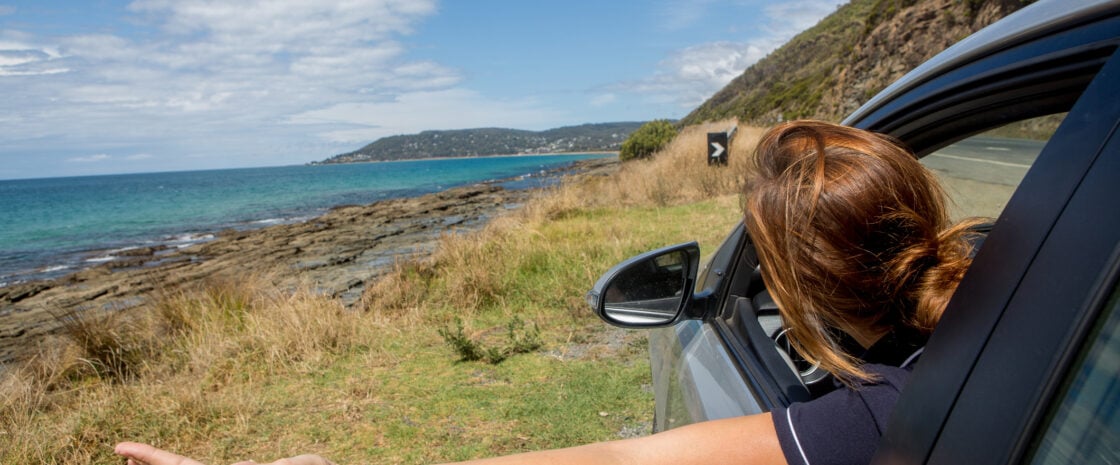Credit cards generally come with more perks than debit cards. Complimentary insurance policies are one of these attractive features, with travel insurance, for example, often covering cardholders overseas, at home and on the road. While credit card car hire insurance doesn’t get much attention, it could potentially save you money and hassle when you need a rental car.
Car hire insurance or ‘rental vehicle excess insurance’ is your insurance policy for a hire car, meaning you shouldn’t have to pay extra with the provider. If your credit card offers complimentary car hire insurance and you plan to use it, make sure you understand the terms and conditions.
How credit card car hire insurance works
Rental companies typically include some level of insurance, such as a Loss Damage Waiver (LDW), in their pricing. However, this coverage may not fully protect you in the event of an accident. Depending on the extent of the damage, you could be on the hook for thousands of dollars.
You can reduce your financial liability by paying an upfront fee for more cover, but you may not need to if you have the right type of credit card.
Many banks and credit card companies provide this additional coverage as a perk on some cards. For example, Westpac covers the maximum total limit up to the amount specified in your rental vehicle agreement or $5,500, whichever is lesser.
When reviewing your policy, be sure to check if your card is eligible for rental vehicle excess insurance. Note the fee for making an excess claim and carefully read the Policy Disclosure Statement (PDS). You should confirm that the coverage applies to your vehicle type, size, location, and rental length. Also be aware of any limitations, such as tyre, windscreen, roof or interior damage.
If any of these conditions are unclear, consult your credit card provider, the car rental company or the insurer.
Drawbacks and common pitfalls
Consider these common pitfalls before deciding to use credit card car hire insurance.
- Your credit card rental car insurance might not be sufficient for all cards, customers or vehicles. These policies are not a catch-all.
- ‘Complimentary’ is not ‘free’, and you may need to pay for things like excess claim costs.
- Policies are often hard to understand. You may have to read the multiple terms and conditions, often from your bank, the rental car company and the insurer
- It may be challenging to reject the excess insurance with the rental car provider, as they might have mandatory policies.
How to use credit card car hire insurance
To access complimentary rental vehicle excess insurance, you must charge the total car hire cost on the eligible credit card.
You also need to follow to the terms and conditions outlined in the policy booklet. Exclusions can include driving under the influence, driving without a licence, or using the vehicle in breach of the rental agreement.
For any future claims, keep your paperwork in order. You’ll need a copy of your rental vehicle agreement, a completed incident report, a letter from the rental company outlining the amount owed, and an itemised list of the value of the damage.
Potential perks (beyond insurance coverage)
There are various benefits to consider when deciding how to pay for your rental car hire. When doing so with a credit card, you have the potential to:
- Save on the total rental cost because you don’t have to pay extra to reduce your excess.
- Earn credit card points on a high-ticket purchase you might’ve otherwise paid for with your debit card. For example, if the car rental comes to $2,000 and you earn 1.5 points per dollar, you’d 3,000 points.
- Leverage flexible repayment options, such as instalment plans and interest-free periods or other features, if needed.
- Access your bank’s partnerships with car rental companies, which may offer the ability to earn and redeem frequent flyer points. Check special offers for bonus points and ‘book 7 days get 2 days free’ types of deals.
However, you should always be wary of the hidden costs of putting anything on a credit card. Accrued interest, annual card fees, and the stress of added debt are important considerations, and using your credit card to pay for car hire insurance can contribute.
Checklist to maximise the benefits
If you plan to use car hire insurance through a credit card, follow this checklist to get the most out of the policy you choose.
- Look into the insurance offered with your credit card and talk to your bank about how it works.
- Research other credit cards and compare their deals with yours. Don’t be afraid to shop around, especially if you’ve outgrown your current card.
- Pick one or two car rental companies to reach out to. Tell them about your rental vehicle excess insurance and trip details to understand the up-front and potential costs.
- After you have all this information, make a booking.
- Keep all records and receipts from the rental company. Ask for everything in writing.
🤓 Nerdy Tip
Insurance and credit card products aren’t written in a way that the everyday consumer can easily understand but can have a major impact on your finances. So, it’s essential to take your time to understand what your card’s policy includes and how it fits into your overall financial plan.
Frequently asked questions about credit card car hire insurance
If your card comes with an international travel insurance policy, it may. Always check with your bank before travelling because there will be differences or specific conditions. For example, Westpac states coverage is only available on rental vehicle excess overseas if your agreement specifies an amount payable if it is damaged or stolen.
Contact the rental car provider to let them know the situation before calling your bank. Make sure you include the supporting documents in your claim — the car rental agreement, any police reports, photo evidence, and receipts. You’ll be asked to contact the insurance company, but it doesn’t hurt to reach out to your bank first.
No. It’s best to see complimentary insurance available through your credit card as a separate offering. For example, you can’t combine your bank’s rental vehicle excess insurance with a third-party provider for ‘double’ the benefits. These policies have strict terms and aren’t designed to be mixed and matched.
DIVE EVEN DEEPER

8 Tips For Using A Credit Card Overseas
Follow best practices when using a credit card overseas, like using a travel money card, carrying cash and leveraging frequent flyer points.

How Do Credit Cards Make Money?
Financial institutions issue credit cards to customers and make money off these cards in a variety of ways. Understanding these costs can help you avoid paying more for your credit card.

9 Things To Know Before Getting Your First Credit Card
Understanding the basics can save you time, money and frustration and get you on your way to building good credit.

How to Choose a Credit Card in Australia: 4 Steps
Learn how to choose a credit card with these four simple steps.

